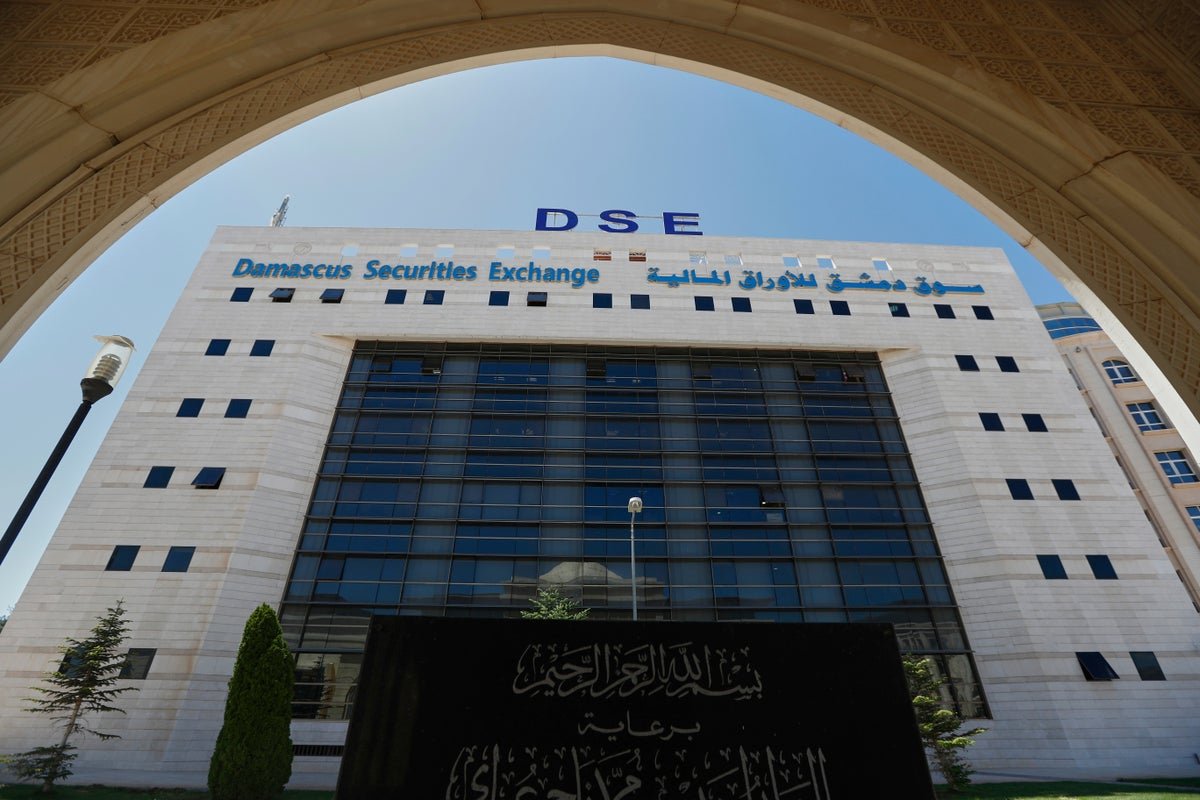US Politics
Syria’s post-war economic recovery will require ‘substantial’ international support, IMF says

Your support helps us to tell the story
From reproductive rights to climate change to Big Tech, The Independent is on the ground when the story is developing. Whether it’s investigating the financials of Elon Musk’s pro-Trump PAC or producing our latest documentary, ‘The A Word’, which shines a light on the American women fighting for reproductive rights, we know how important it is to parse out the facts from the messaging.
At such a critical moment in US history, we need reporters on the ground. Your donation allows us to keep sending journalists to speak to both sides of the story.
The Independent is trusted by Americans across the entire political spectrum. And unlike many other quality news outlets, we choose not to lock Americans out of our reporting and analysis with paywalls. We believe quality journalism should be available to everyone, paid for by those who can afford it.
Your support makes all the difference.
Read more
Syria will need “substantial international” support for its efforts to rehabilitate the economy, meet urgent humanitarian needs, and rebuild essential institutions and infrastructure, the International Monetary Fund said Tuesday.
Syria cannot afford hundreds of billions of dollars of damages and losses from the conflict that first started as protests in 2011 against former President Bashar Assad’s totalitarian government.
Since current President Ahmad al-Sharaa led an insurgency that ousted the Assad dynasty in December 2024, countries have gradually restored ties with Syria.
During a five-day visit by the IMF in early June — the first to Syria by the 191-country lending organization since 2009 — its team met with officials from the public and private sectors, notably the finance minister and central bank governor.
“Syria faces enormous challenges following years of conflict that caused immense human suffering and reduced its economy to a fraction of its former size,” the IMF said. “While the years of conflict and displacement have weakened administrative capacity, staff at the finance ministry and central bank demonstrated strong commitment and solid understanding.”
Some 6 million people fled Syria during the conflict, and the United Nations estimates that 90% of those who stayed lived in poverty and relied on humanitarian aid to survive. Half a million people were killed in the conflict.
Damascus now anticipates investments and business projects with Qatar, Turkey, Saudi Arabia, and others, as they reestablish flight paths and hold high-level political and economic meetings.
U.S. President Donald Trump said that Washington will lift decadeslong sanctions against Syria, but it is unclear how long that process could take. Britain and the European Union had eased some restrictions.
Meanwhile, oil-rich nations Saudi Arabia and Qatar paid off Syria’s debt to the World Bank, valued at near $15 billion.
The IMF said it is developing a roadmap for Syria’s policy and capacity building priorities for key economic institutions, including the finance ministry, central bank, and statistics agency.
But Syria has a laundry list of reforms it must undertake, including improving its tax collection system, making sure its national budget can pay public sector salaries and basic healthcare and education, empowering the central bank to take measures to bring back confidence to the local currency, and rehabilitate its outdated and battered banking system in line with international standards.
In 2017, the United Nations estimated that rebuilding Syria would cost about $250 billion. Since Assad was overthrown, some experts say that number could be as high as $400 billion.
